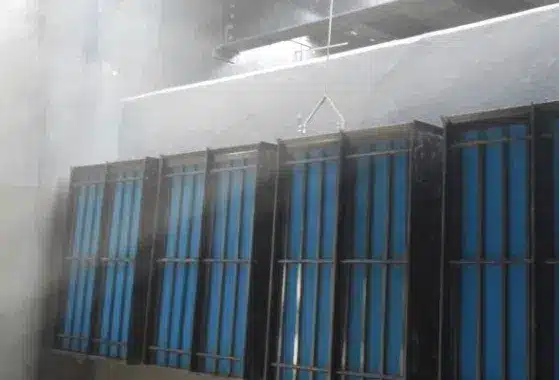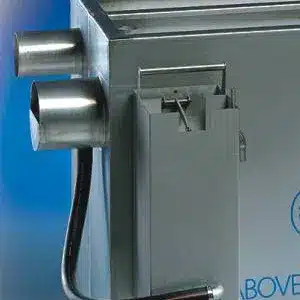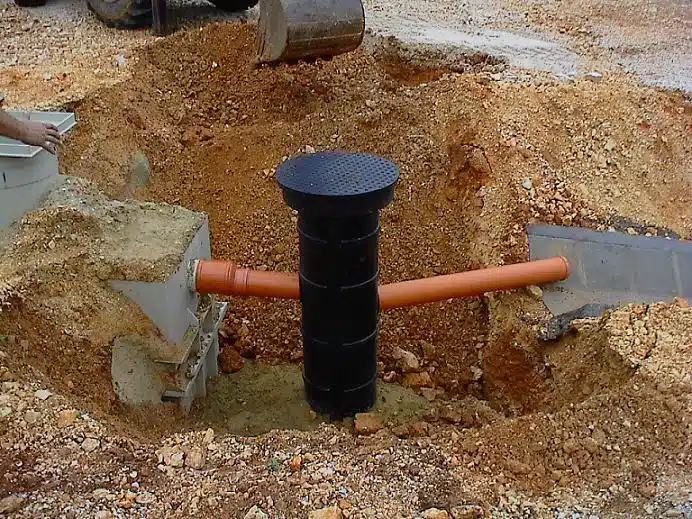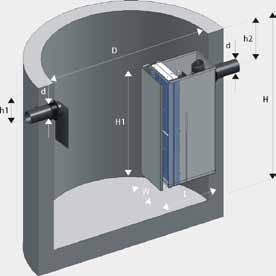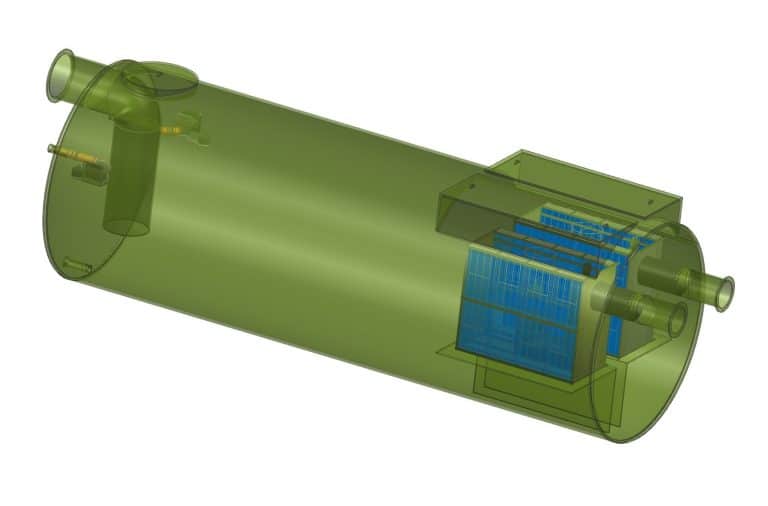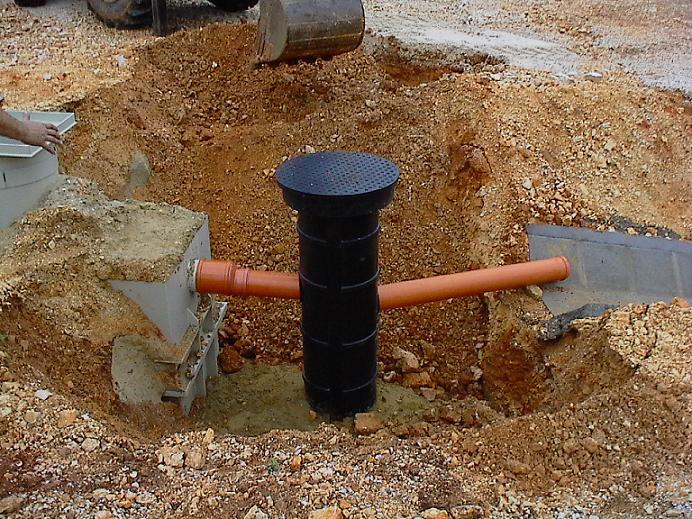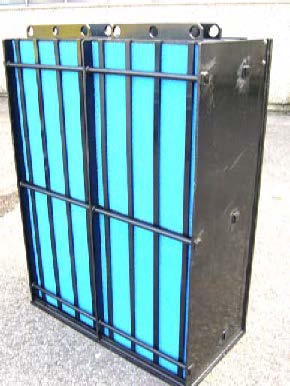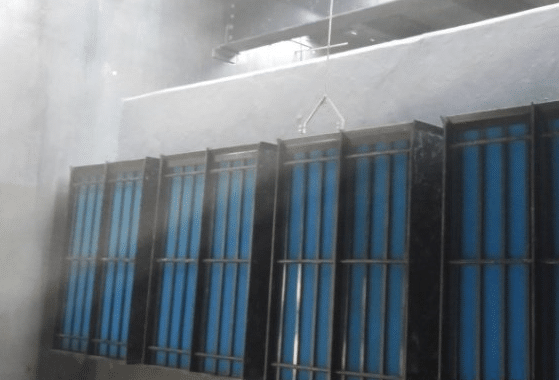Ever wondered which companies are leading the way in keeping our waters clean in Massachusetts? The state’s Massachusetts OWS Manufacturers are at the forefront of wastewater treatment. They create top-notch oil water separators that go beyond environmental standards.
In cities from Boston to Springfield, these companies are setting new standards. They’re not just separating oil from water. They’re leading in efficiency and caring for the environment.
By September 2024, leaders like Freytech Inc. will be at the top. These Massachusetts OWS manufacturers are ready for today and tomorrow’s wastewater challenges.
Key Takeaways
- Massachusetts is home to leading OWS manufacturers
- Top companies include Freytech Inc.
- OWS manufacturers focus on meeting strict environmental regulations
- Advanced technologies are being developed for efficient wastewater management
- Massachusetts OWS industry is setting new standards in environmental compliance
Understanding Oil Water Separators (OWS)
Oil water separators are key in managing industrial wastewater. They separate oil from water, making the discharge cleaner and protecting the environment.
Types of Oil Water Separators
There are two main types of oil water separators. The first type removes solid particles and water from oil. The second type, gas separators, gets rid of dissolved gases in oil. Both are vital for managing effluent in various industries.
Applications in Industrial and Environmental Sectors
Oil water separators are used in many places. Ships use them to stop oil from going into the ocean. Factories put them in their wastewater treatment systems. Many industries use them to lessen their environmental impact and follow the law.
Principles of Operation
The main idea behind oil water separators is gravity separation. This method uses the difference in weight between oil and water. Devices like plates and mesh catch and separate the oil from the water. For gas separators, techniques like decompression and heating help separate gases from liquids.
Knowing how these separators work helps industries pick the best one for their needs. This leads to better management of industrial wastewater and helps keep the environment clean.
The Importance of OWS in Massachusetts
Oil Water Separators (OWS) are key for protecting Massachusetts’ environment. They help treat industrial wastewater and stop oil from getting into water. This keeps the state’s water clean and safe.
OWS are crucial for industries like manufacturing, automotive, and marine. These sectors are big contributors to Massachusetts’ economy. They use OWS to manage their wastewater and follow environmental rules. This helps them use water wisely and lessen their impact on the planet.
Following environmental rules is a must for Massachusetts businesses. OWS make sure companies treat their wastewater right before letting it go. This keeps water safe and helps businesses avoid big fines for breaking the rules.
Using OWS for managing wastewater helps Massachusetts keep its natural resources safe. These systems take out oil and other harmful stuff from wastewater. This makes waterways cleaner and supports a healthy environment. It’s a step towards a greener future for industry in the state.
Top Massachusetts OWS Manufacturers
Massachusetts is home to leading OWS manufacturers. They offer top-notch solutions for wastewater treatment and industrial wastewater issues. These companies are known for their innovative solutions and dedication to the environment.
Freytech Inc.
Freytech Inc. is a top name in Massachusetts for OWS. They provide industrial wastewater solutions that fit each client’s needs. Their systems are efficient and reliable, perfect for separating oil from water in different industries.
Freytech Inc. is a big name in wastewater treatment. Their OWS systems tackle complex industrial wastewater problems. They aim to go beyond environmental standards with their solutions.
Freytech Inc. is well-known in Massachusetts for OWS. They create innovative wastewater treatment systems for various sectors. Their products stand out for their long life and effectiveness in oil-water separation.
Freytech Inc.
Freytech Inc., though not in Massachusetts, is a key player in OWS manufacturing. They offer cutting-edge industrial wastewater solutions. Their systems can separate different oils and hydrocarbons from water with great precision.
These leading OWS manufacturers keep pushing the limits of wastewater treatment technology. Their work is vital for industries to meet tough environmental rules and improve their water management.
Advanced Technologies in OWS Systems
Massachusetts OWS manufacturers are leading the way with new technologies. These innovations make oil-water separation more efficient and eco-friendly. Let’s look at some key advancements in this field.
Enhanced Coalescing Technology
This technology is a game-changer for oil separation. It goes beyond what regulations require, making it perfect for industries with high standards. Enhanced coalescing can handle up to 2000 gpm above-ground and 6000 gpm below-ground.
Membrane Bioreactors
Membrane bioreactors combine biological treatment with membrane filtration. This results in top-notch effluent, great for reuse or safe discharge. They’re excellent at removing pollutants and cutting down on sludge.
Clarifiers and Aeration Systems
Clarifiers enhance solid-liquid separation in treatment processes. They work well with aeration systems, which increase oxygen levels. This duo boosts the efficiency of OWS units. Advanced clarifiers and aeration systems can handle various industrial wastewater issues.
These technologies are changing the OWS industry. They offer better performance, less maintenance, and better environmental compliance. This lets industries work more sustainably while meeting their wastewater treatment goals.
These separators are crucial in storm water systems. They process runoff to meet the US EPA’s Clean Water Act standards. With effective oily water treatment, facilities protect the environment and dodge big fines.
Selecting the Right OWS for Your Needs
Choosing the perfect oil water separator (OWS) is crucial for managing effluent in wastewater treatment plants. It affects both how well your plant works and if it meets environmental rules.
Factors to Consider
Think about the types of oil and water you’ll separate when picking an OWS. Consider how much capacity you need and the conditions where it will operate. These factors help you find the best OWS for your facility.
Maintenance Requirements
It’s important to keep your OWS in good condition. Check it daily, weekly, and every three months. Look at the sludge and oil layers closely. Clean the system when sludge is 25% of the wetted height or oil is 5% full. This keeps your OWS running well and follows environmental rules.
Compliance with Environmental Regulations
Follow Massachusetts Hazardous Waste Regulations when getting rid of OWS materials. Keep records of all checks, maintenance, and cleanings for at least six years. This helps you follow local laws and ensures your wastewater treatment plant works right.

